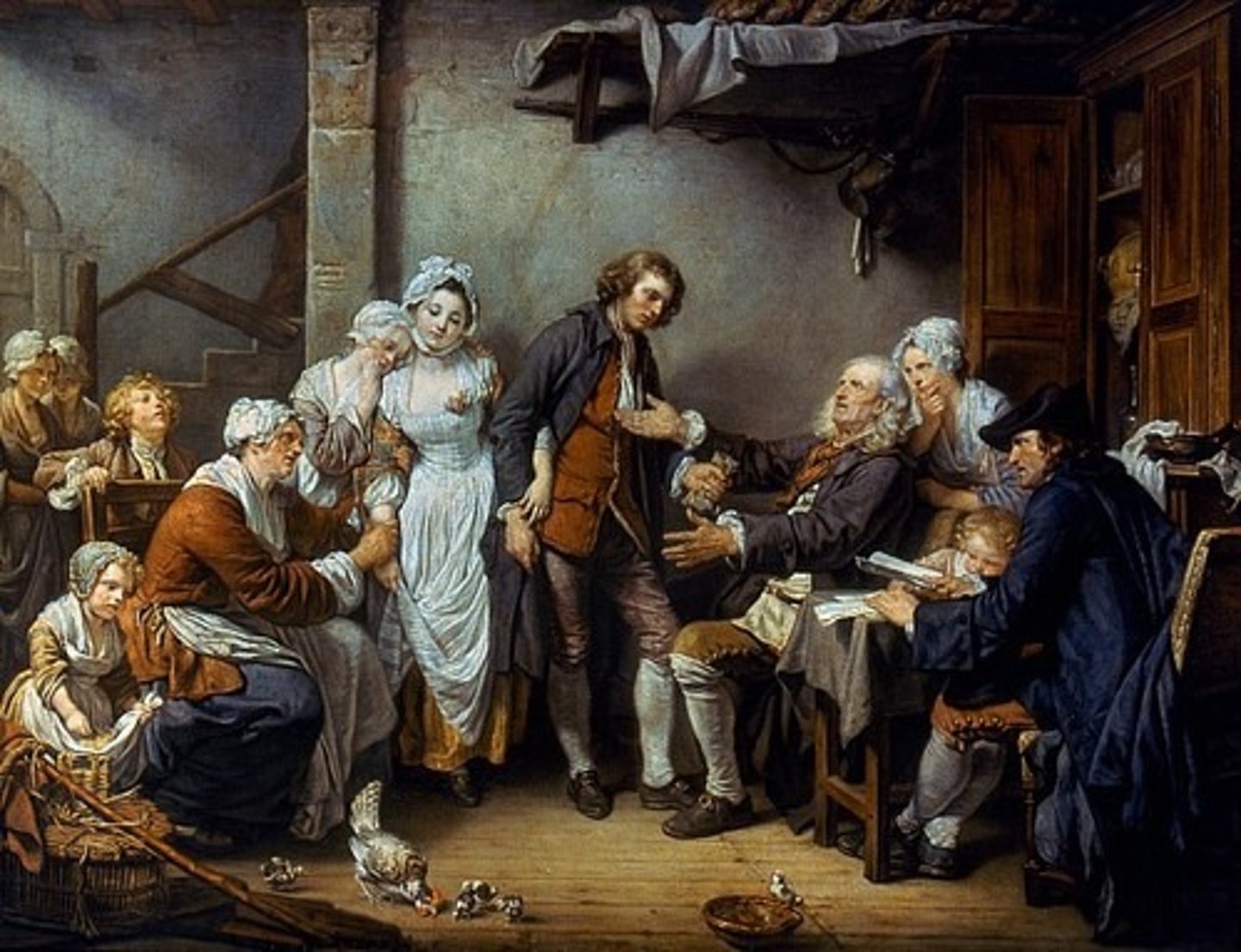APUSH - Time Period 4 Part 2
1/24
There's no tags or description
Looks like no tags are added yet.
Name | Mastery | Learn | Test | Matching | Spaced | Call with Kai |
|---|
No study sessions yet.
25 Terms
Unitarianism
Christian doctrine that stresses individual freedom of belief and rejects the Trinity.
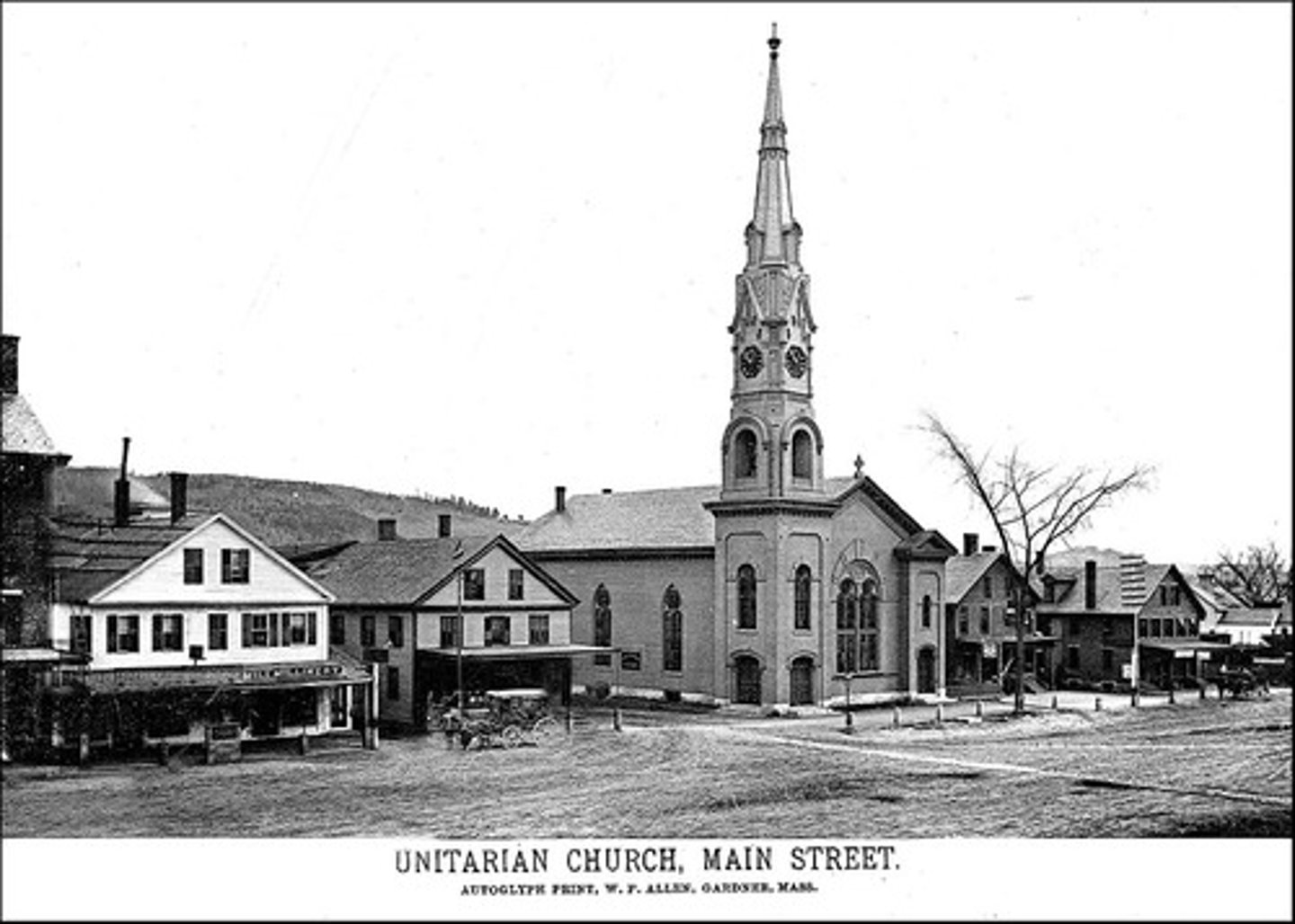
King Cotton
Expression used by Southern authors and orators before Civil War to indicate economic dominance of Southern cotton industry, and that North needed South's cotton. Coined by James Hammond
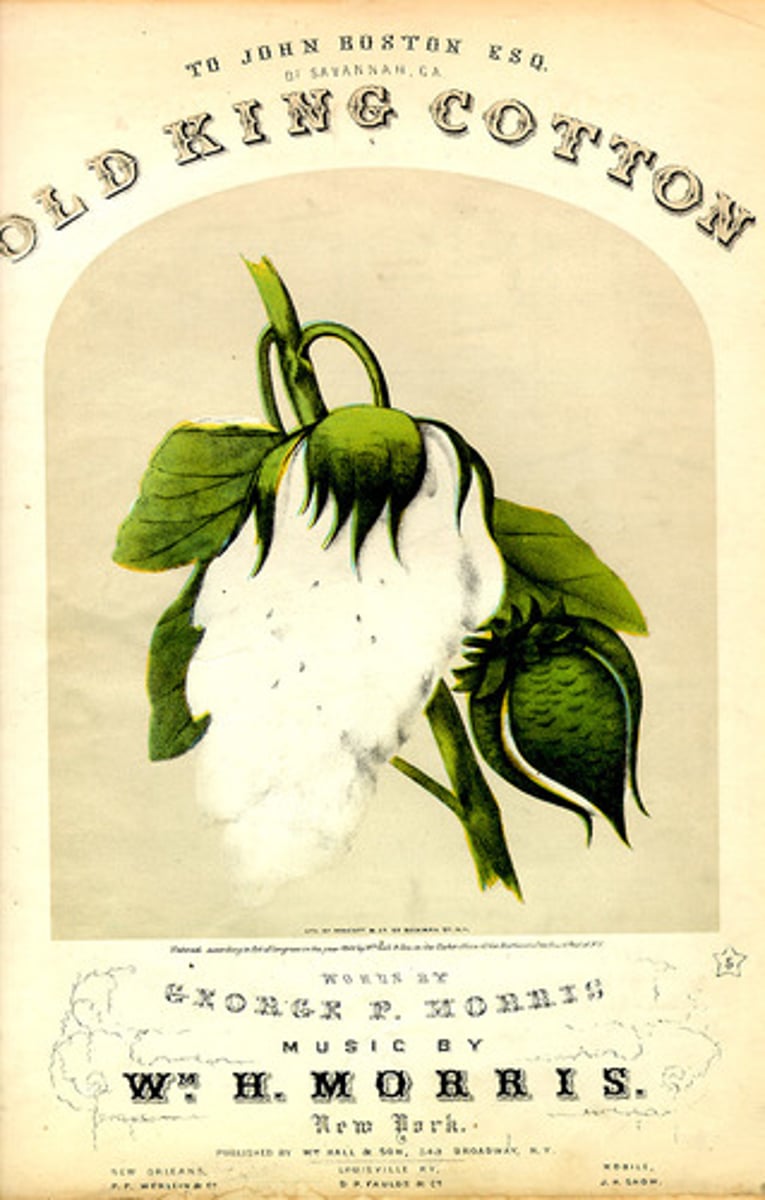
Richard Allen
An African American preacher who helped start the free African society and the African Methodist Episcopal church
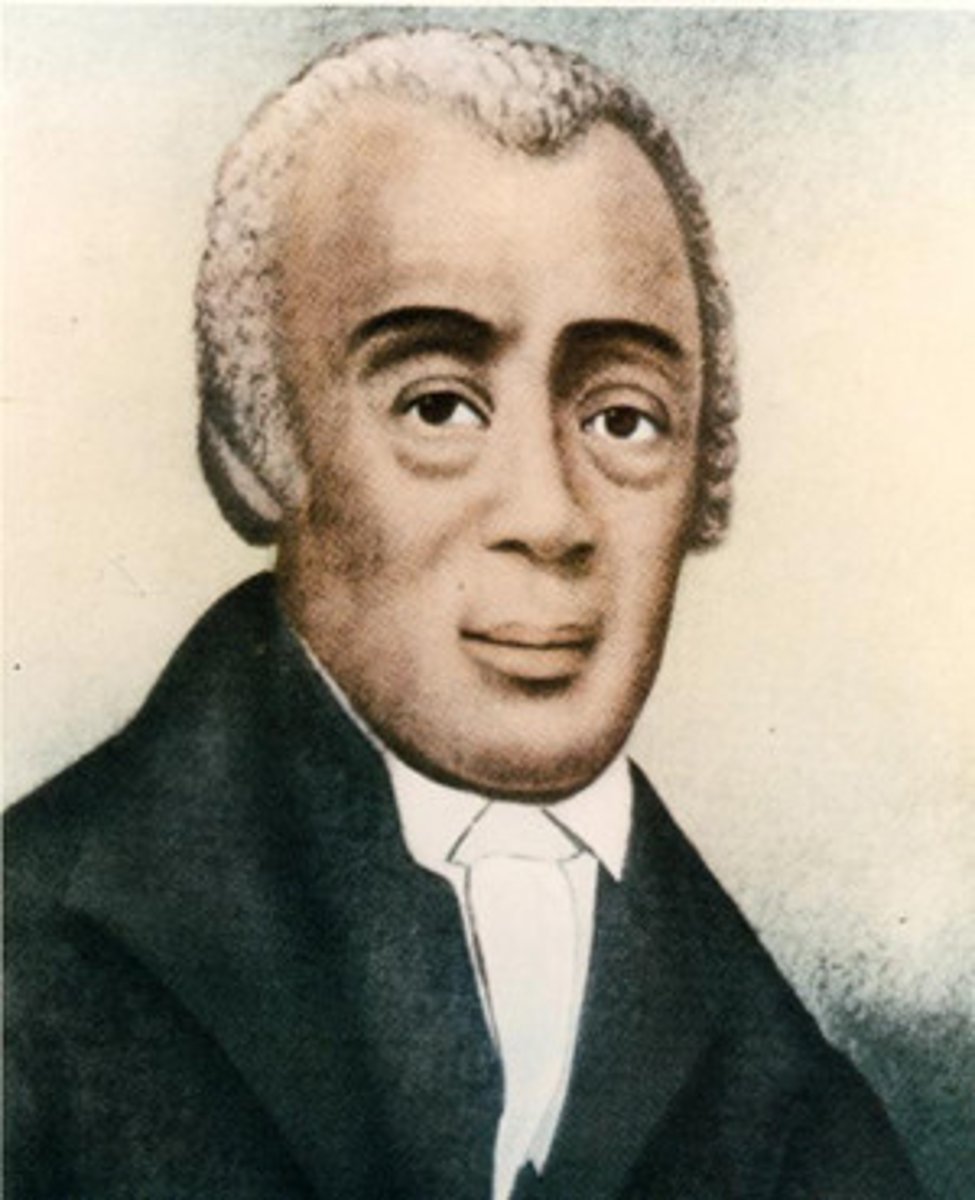
Industry in the North
manufactured goods and factories, major economic focus in the North.
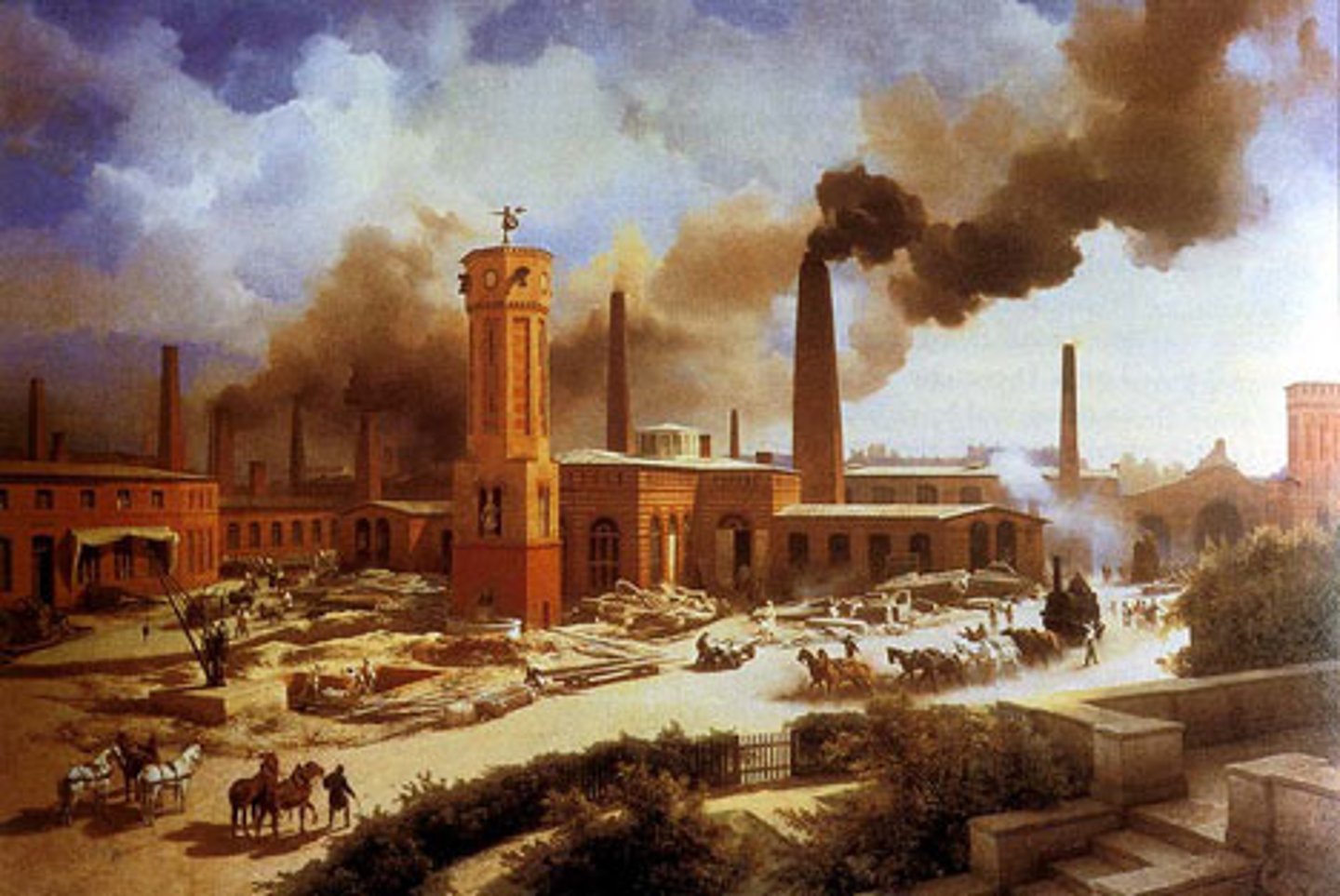
Sectionalism
Loyalty to one's own region of the country, rather than to the nation as a whole
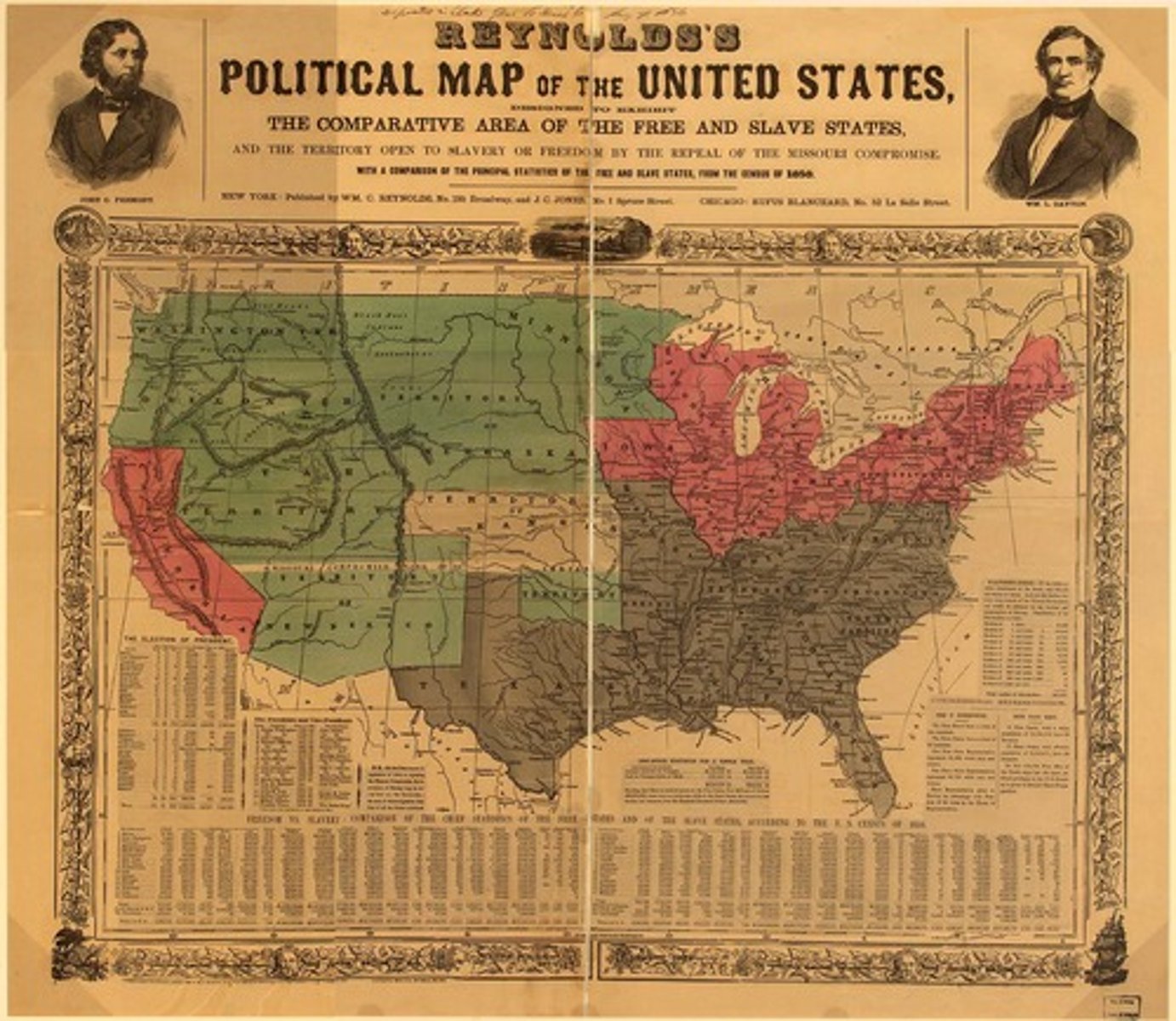
Irish Immigrants
Came to the U.S. because of the Irish Potato Famine. Many worked in factories in harsh conditions for little pay. Clashed as they attempted to create Catholic churches in NE cities.
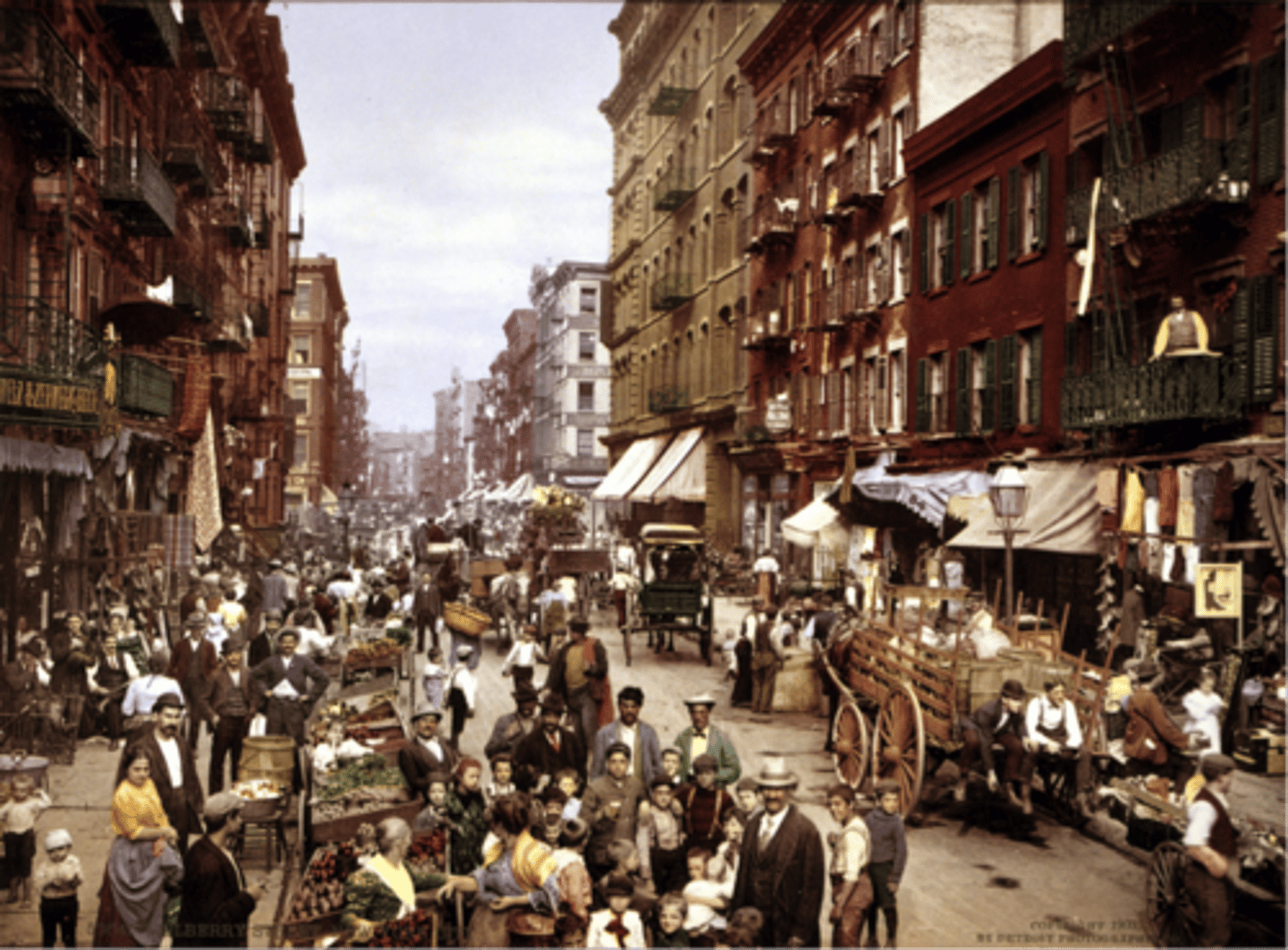
William Lloyd Garrison
1805-1879. Prominent American abolitionist, journalist and social reformer. Editor of radical abolitionist newspaper "The Liberator", and one of the founders of the American Anti-Slavery Society.
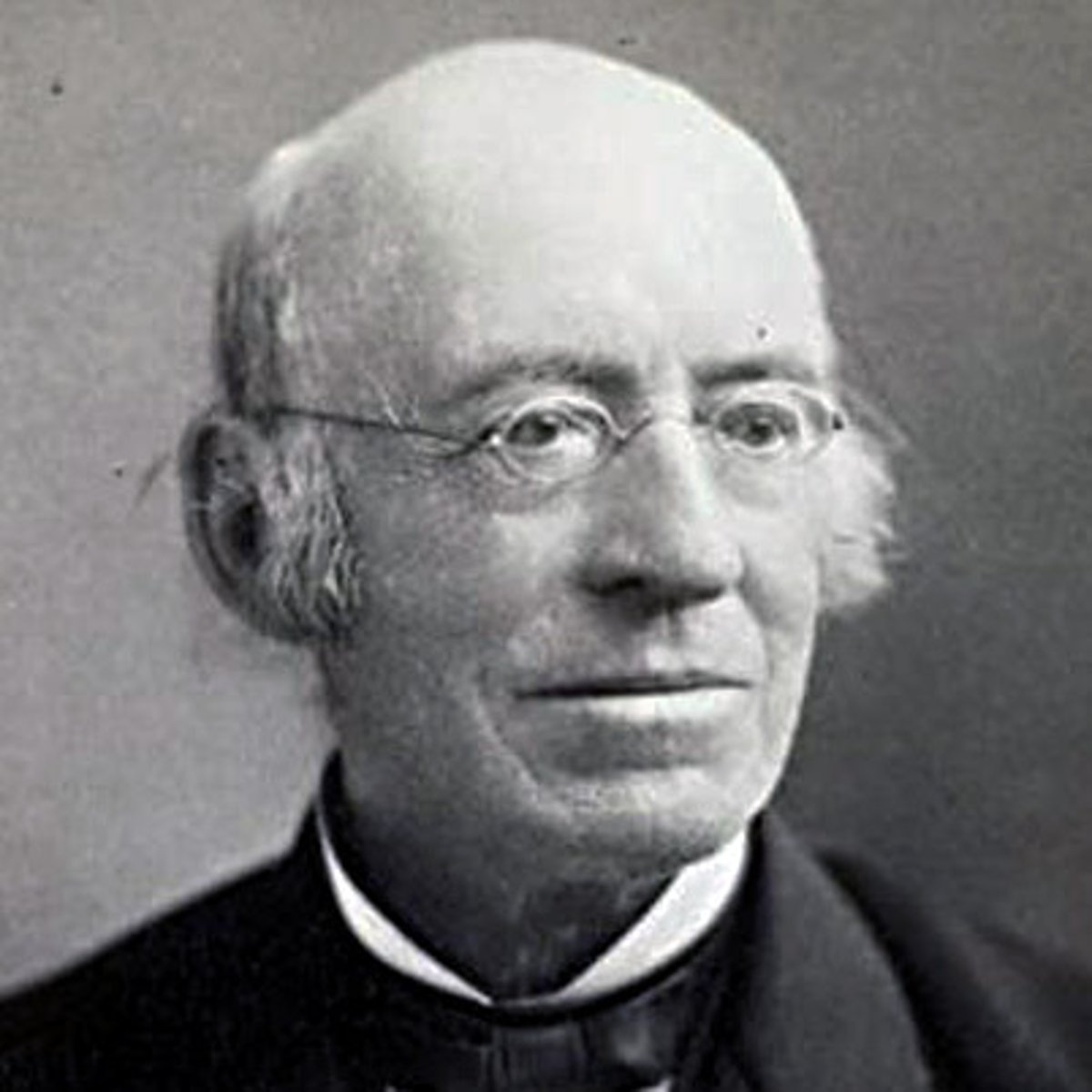
Missouri Compromise
"Compromise of 1820" over the issue of slavery in Missouri. It was decided Missouri entered as a slave state and Maine entered as a free state and all states North of the 36th parallel were free states and all South were slave states.
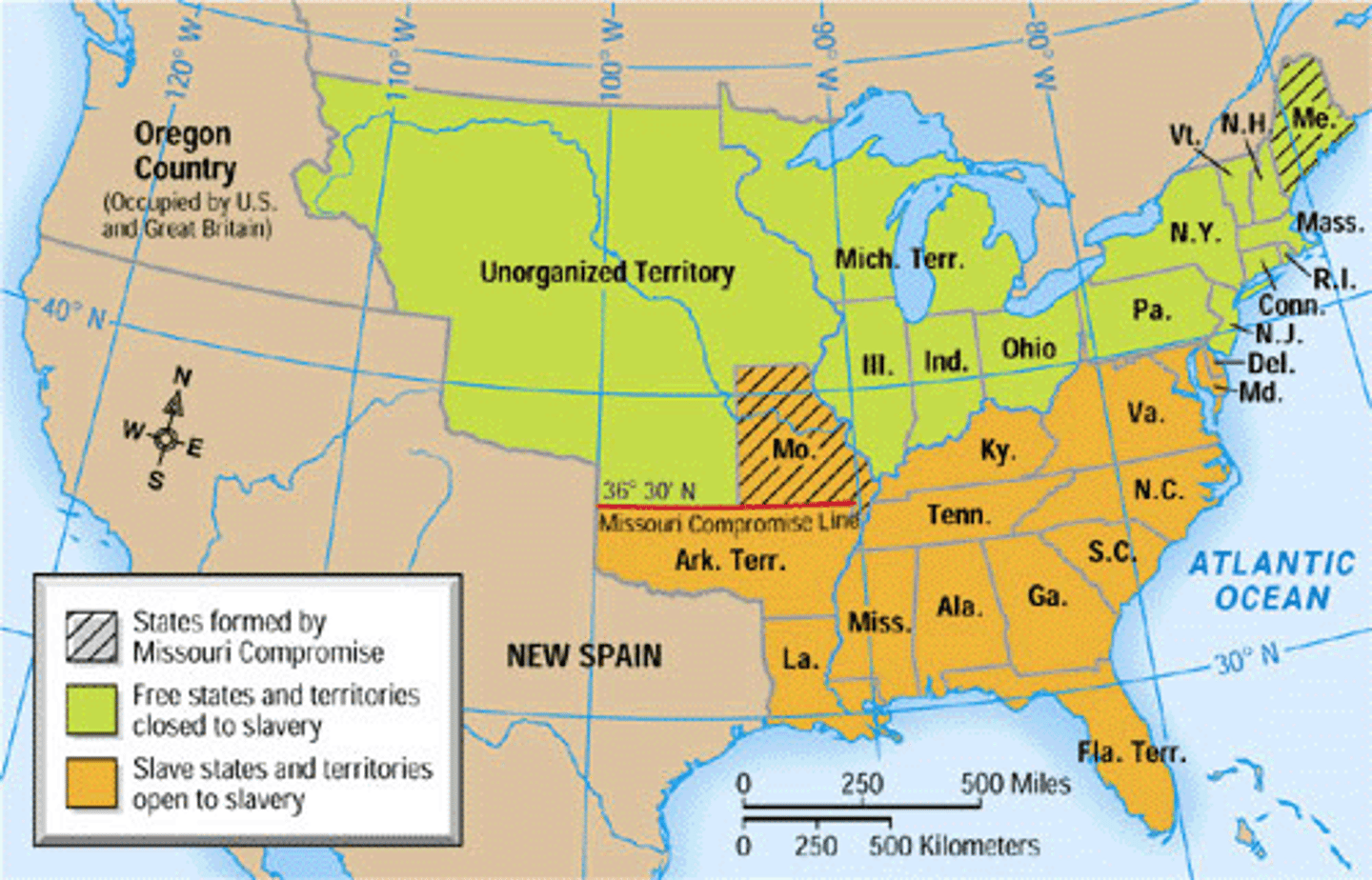
German Immigrants
Settled in the rural Midwest and Texas.
Many were farmers and craftsmen.
Many were well-educated and helped start the system of universal education in the United States. Germans purchased land and opened Catholic churches in the midwest.

Seneca Falls Convention
(1848) the first national women's rights convention at which the Declaration of Sentiments was written.
Organized by Elizabeth Cady Stanton, Susan B. Anthony, and Frederick Douglass
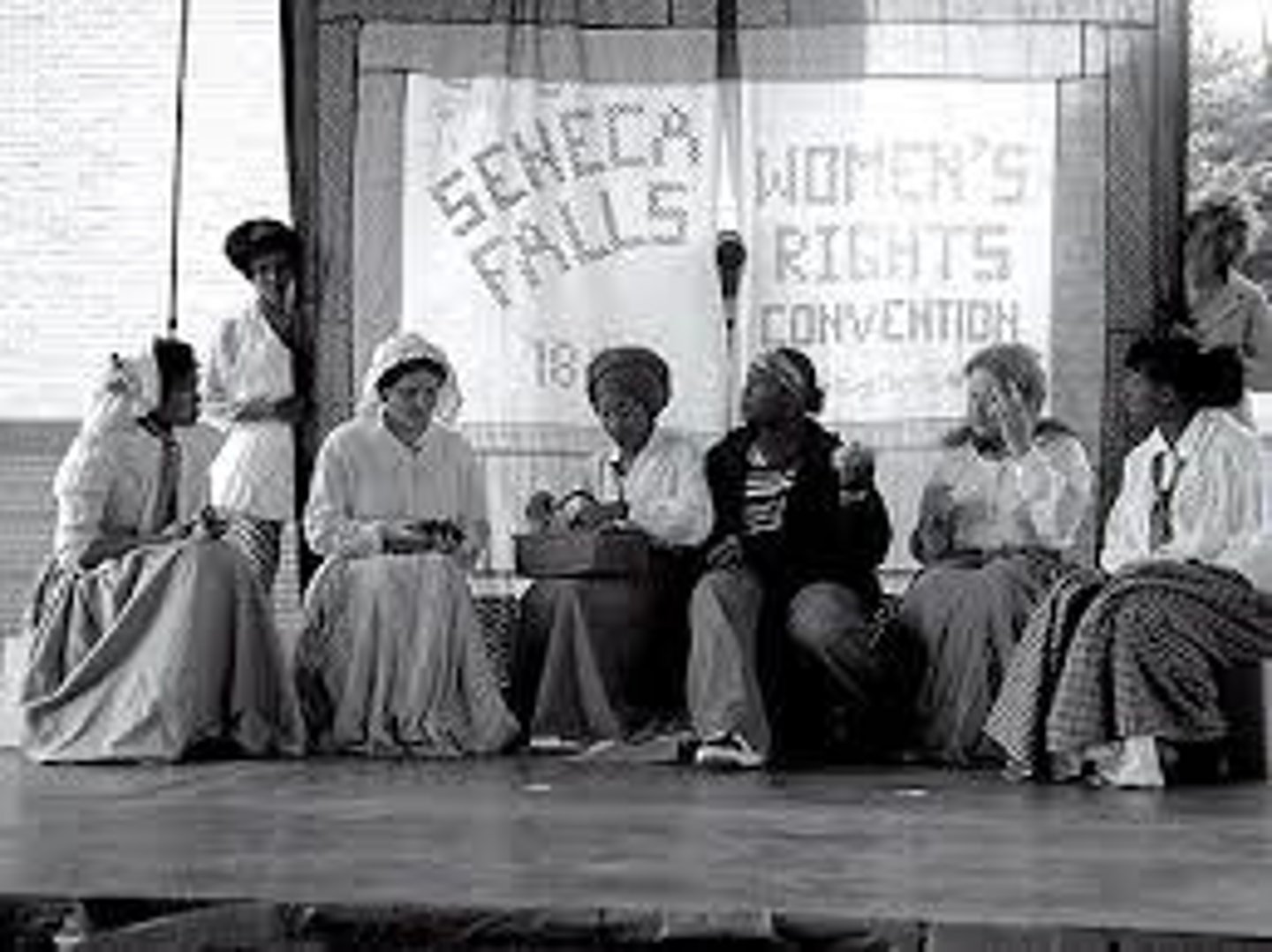
Ralph Waldo Emerson
American transcendentalist who was against slavery and stressed self-reliance, optimism, self-improvement, self-confidence, and freedom. He was a prime example of a transcendentalist and helped further the movement.
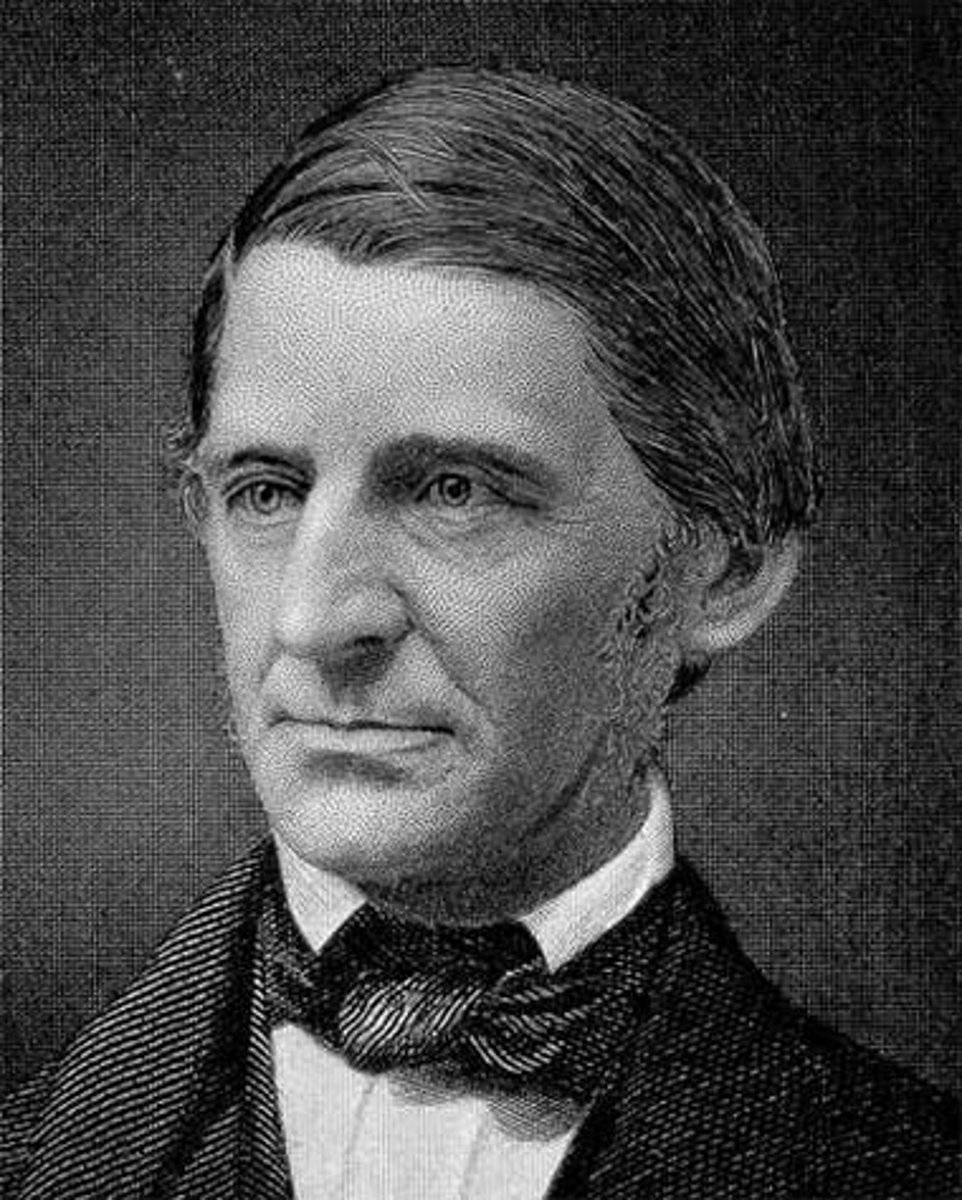
Taiping Rebellion
a mid-19th century rebellion against the Qing Dynasty in China, led by Hong Xiuquan, led to many Chinese immigrants to America
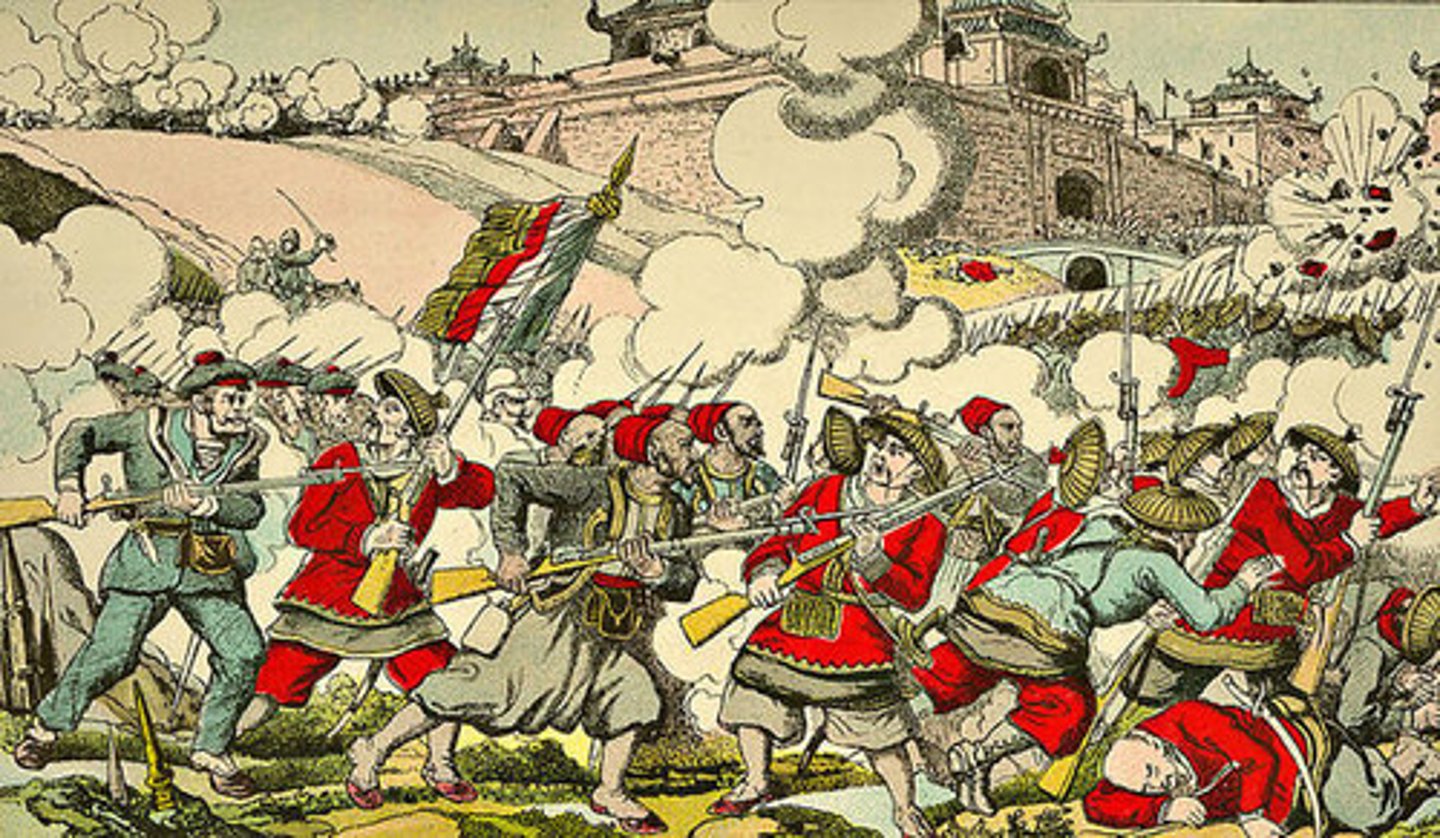
Hudson River School
Founded by Thomas Cole, first native school of landscape painting in the U.S.; attracted artists rebelling against the neoclassical tradition, painted many scenes of New York's Hudson River.
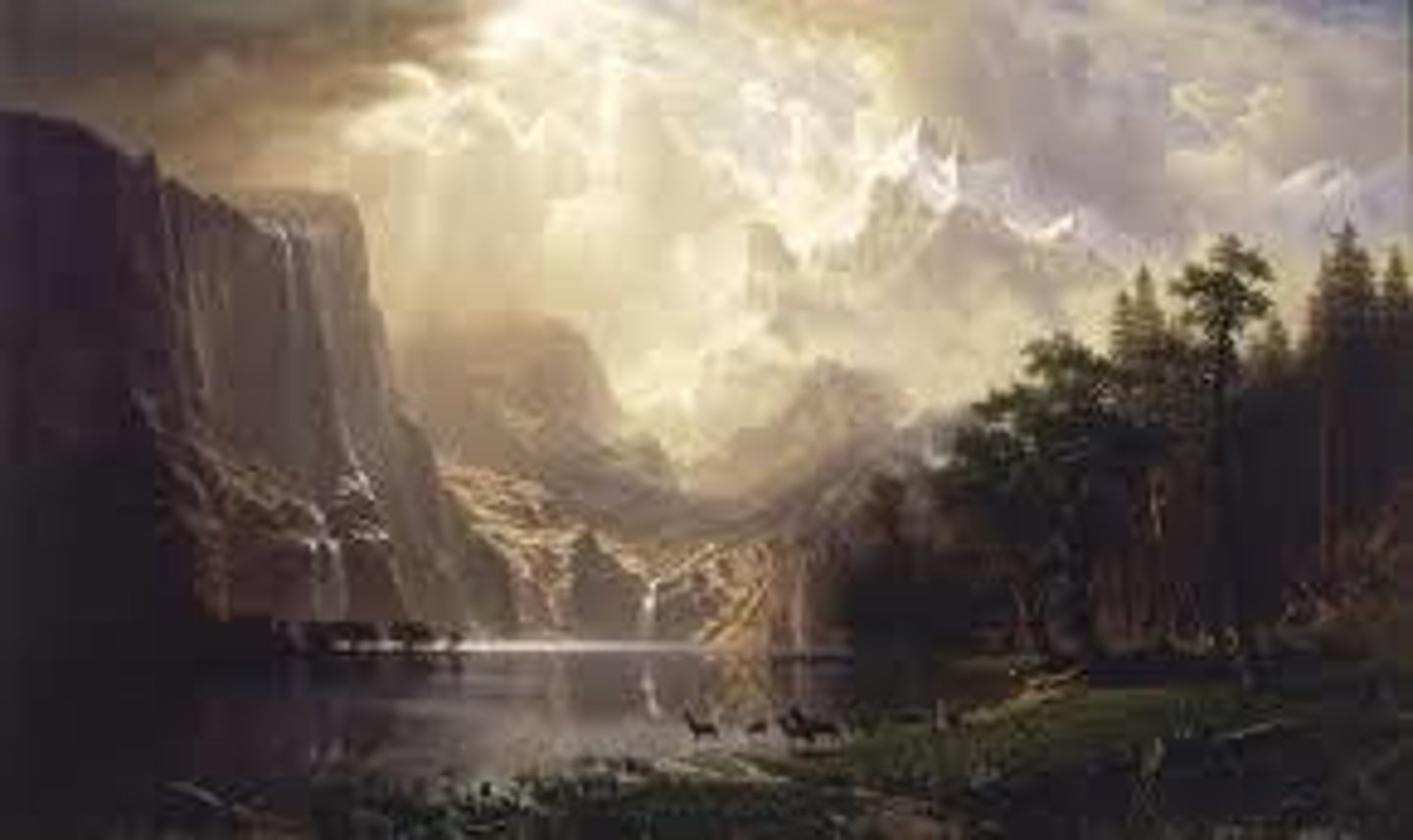
Second Great Awakening
A series of religious revivals starting in 1801, based on Methodism and Baptism. Stressed a religious philosophy of salvation through good deeds and tolerance for all Protestant sects. The revivals attracted women, Blacks, and Native Americans.
Focus on Emotion, Passion, Spirituality, Connection with God, 2nd coming...
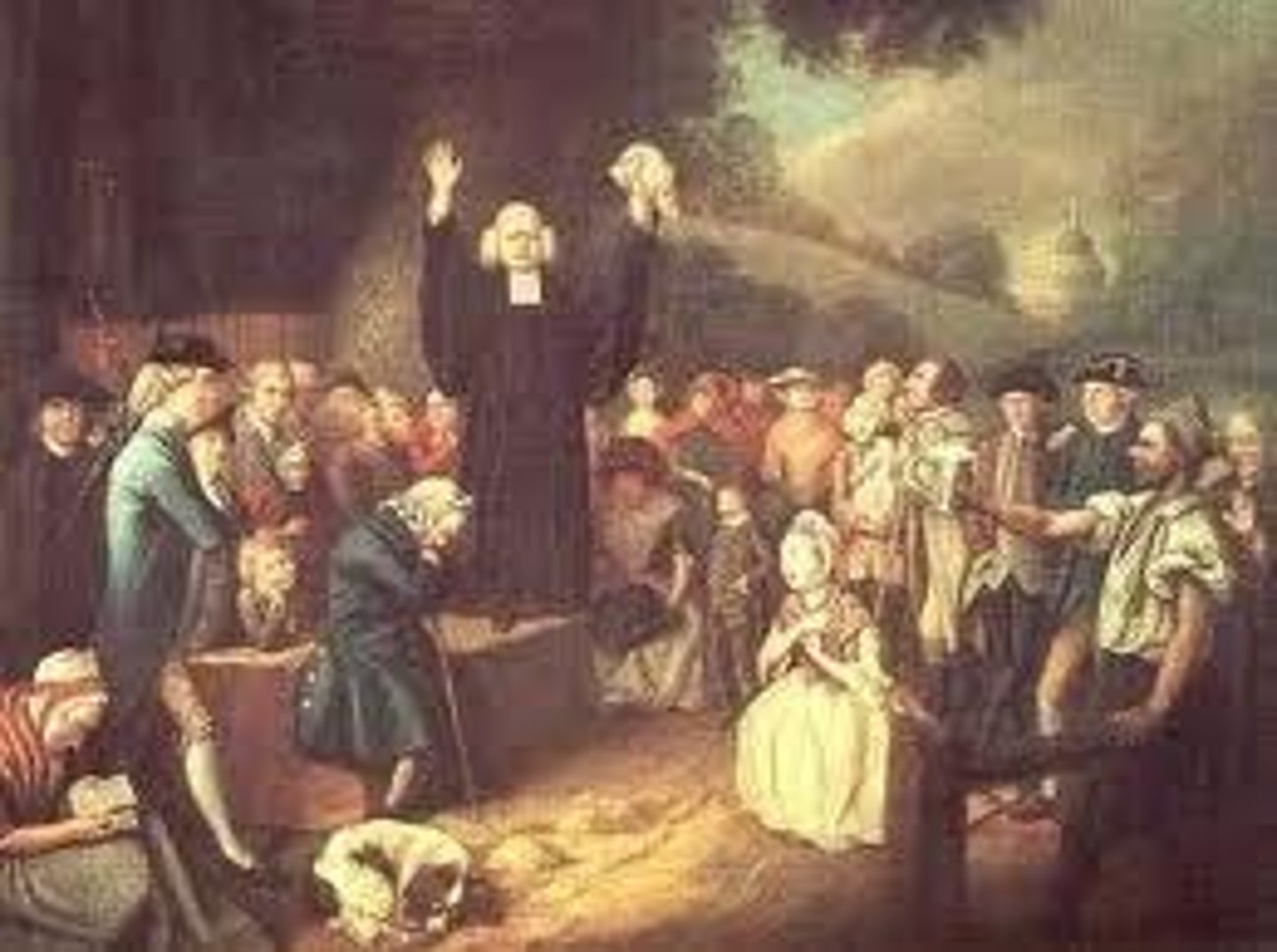
Methodists
Members of a Protestant revival movement started by John Wesley, so called because they were so methodical in their devotion.
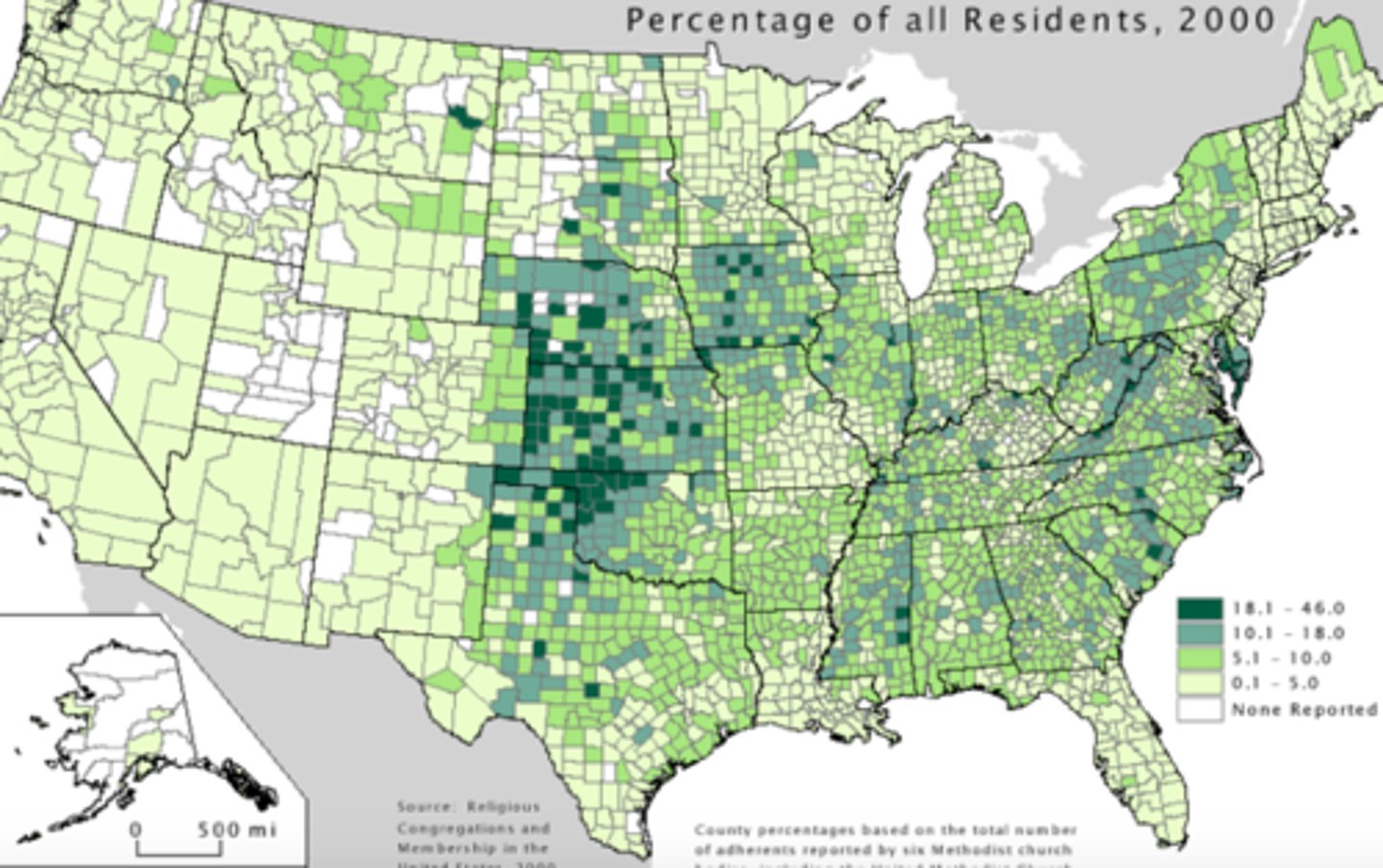
Declaration of Sentiments
declared that all "people are created equal"; used the Declaration of Independence to argue for women's rights
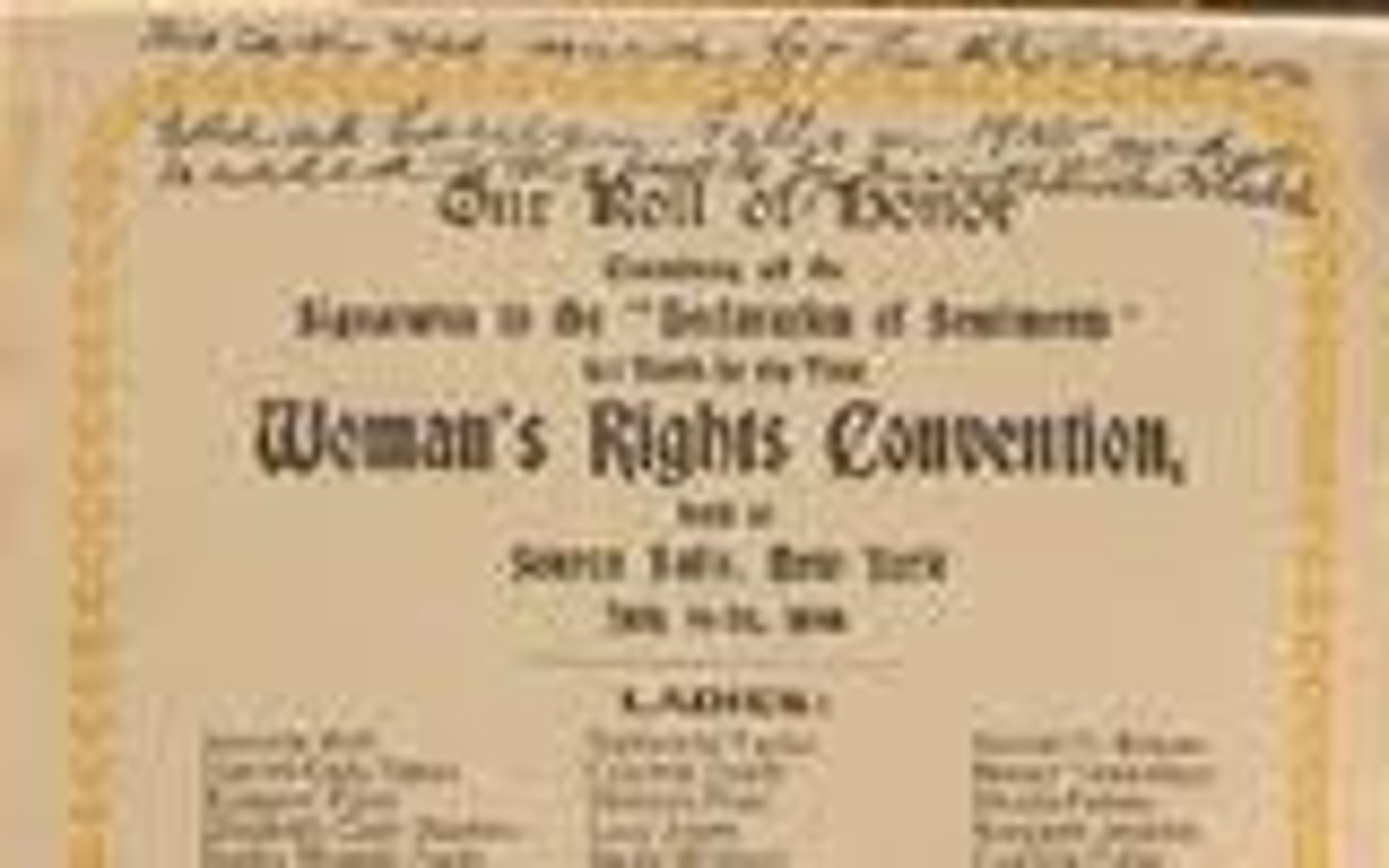
Shakers
1770's by "Mother" Ann Lee; Utopian group that splintered from the Quakers; believed that they & all other churches had grown too interested in this world & neglectful of their afterlives; prohibited marriage and sexual relationships; practiced celibacy
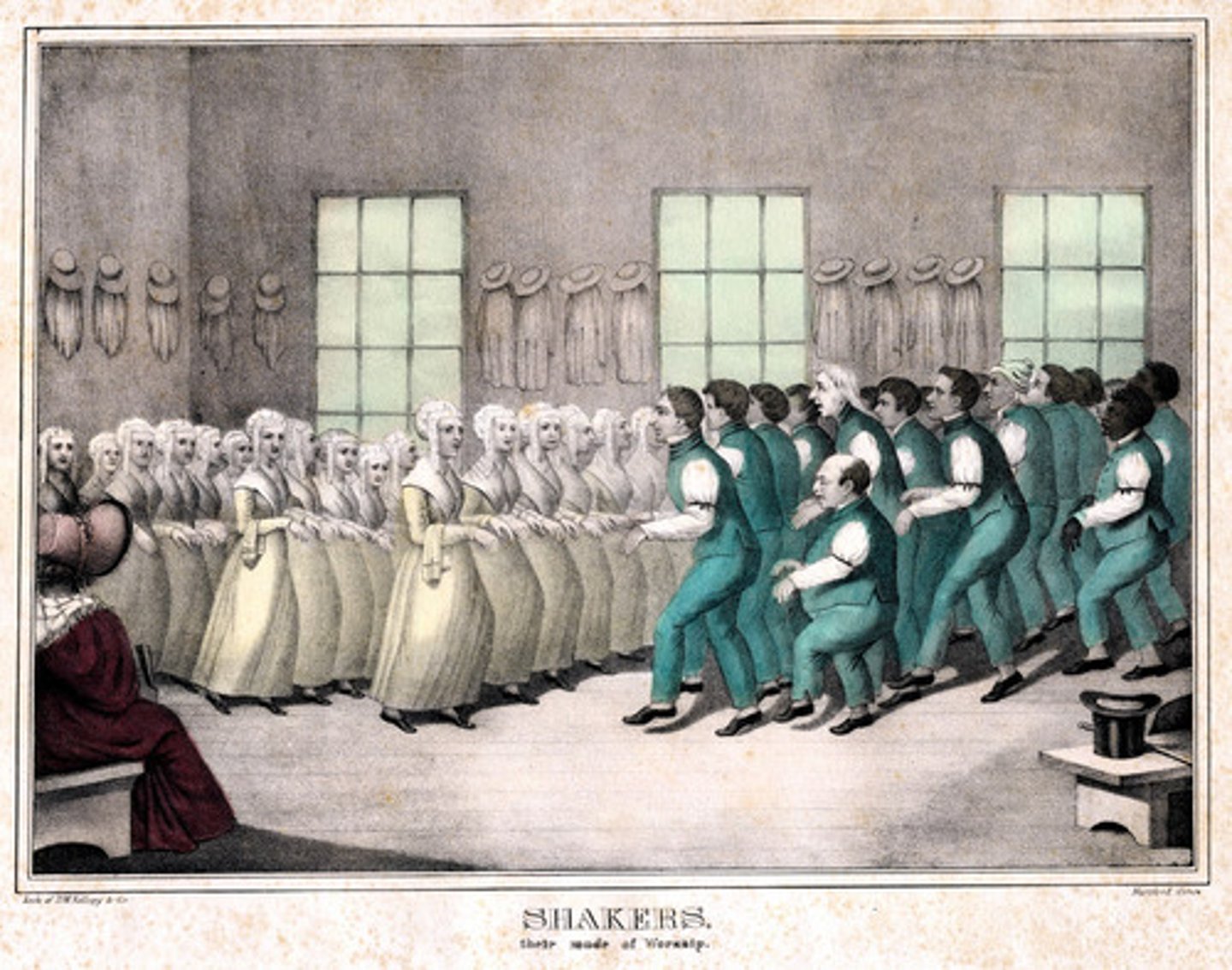
Mormons
Church founded by Joseph Smith in 1830 with headquarters in Salt Lake City, Utah, religious group that emphasized moderation, saving, hard work, and risk-taking; moved from IL to UT
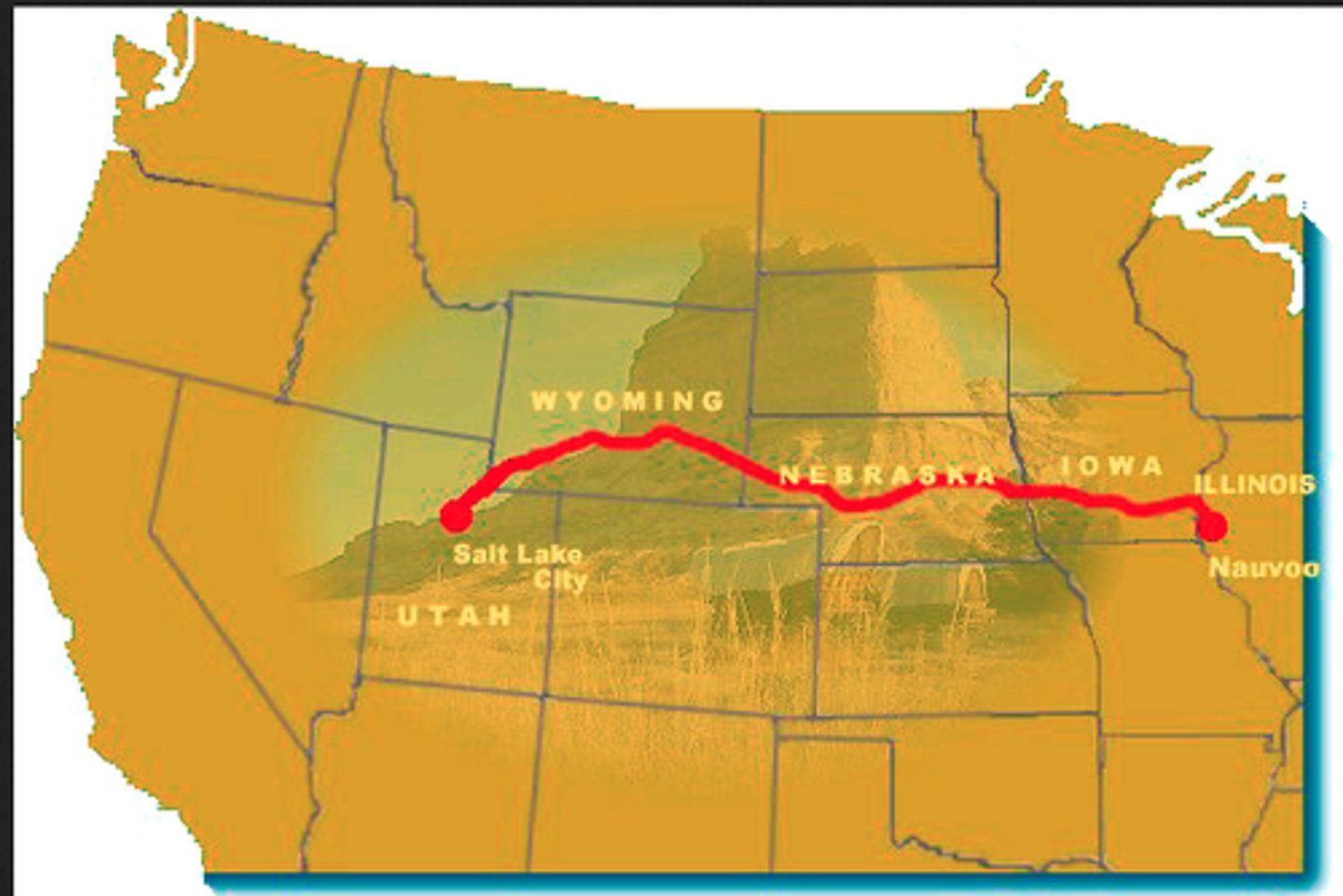
Millenarianism
The doctrine of or belief in a future thousand-year age of blessedness, beginning with or culminating in the Second Coming of Christ. It is central to the teaching of groups such as Plymouth Brethren, Adventists, Mormons, and Jehovah's Witnesses.
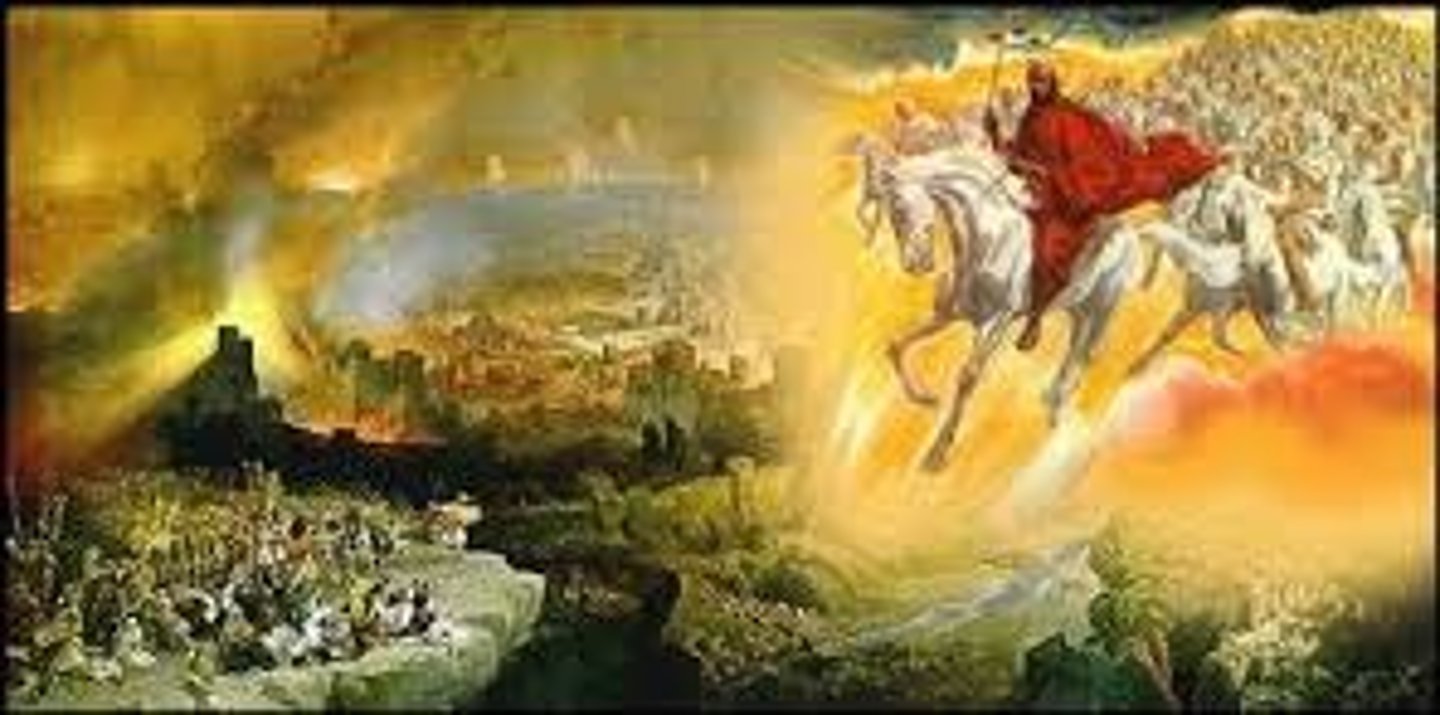
Transcendentalism
A philosophy pioneered by Ralph Waldo Emerson in the 1830's and 1840's, in which each person has direct communication with God and Nature, and there is no need for organized churches. It incorporated the ideas that mind goes beyond matter, intuition is valuable, that each soul is part of the Great Spirit, and each person is part of a reality where only the invisible is truly real. Promoted individualism, self-reliance, and freedom from social constraints, and emphasized emotions.
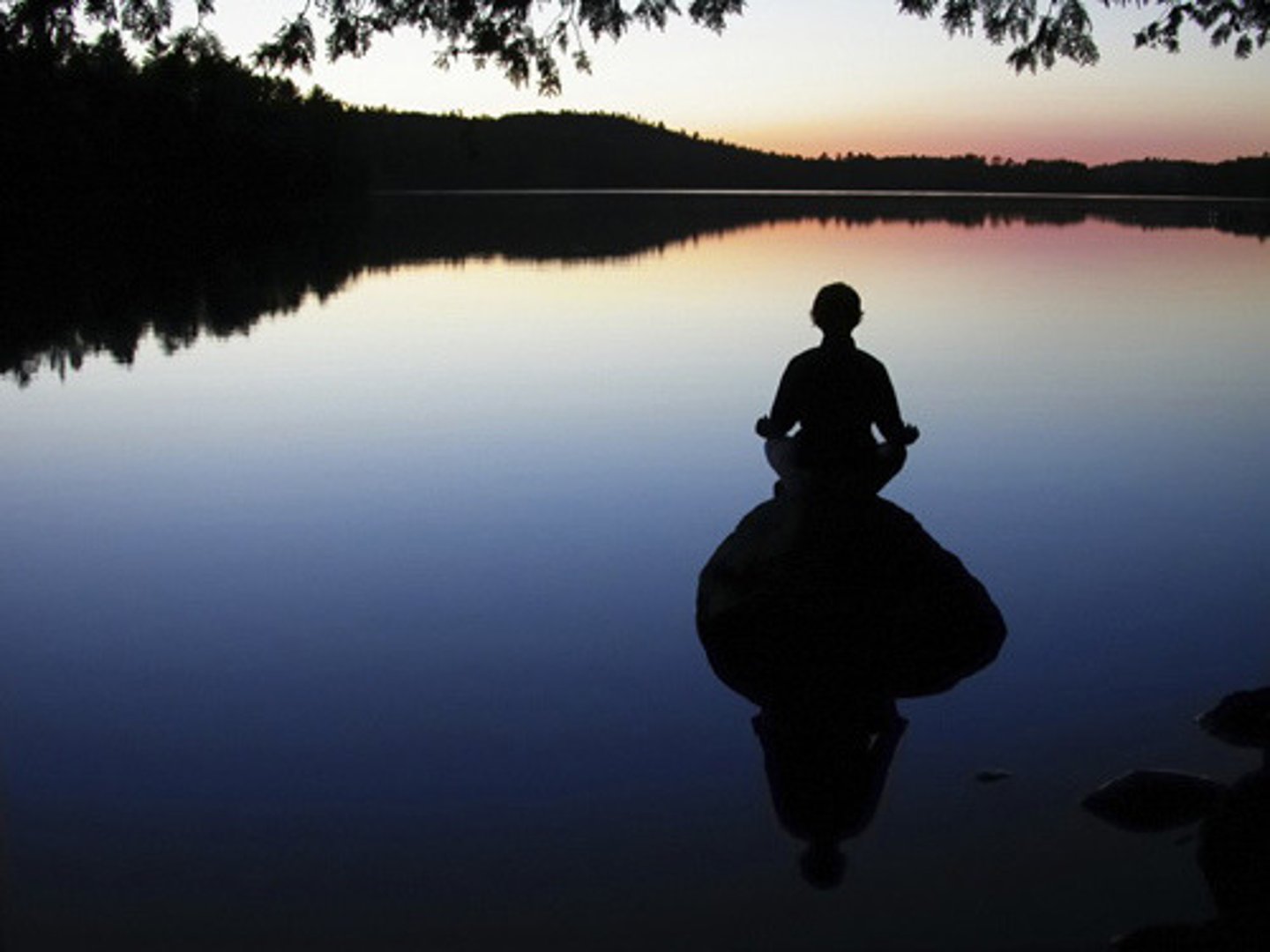
Why northerners opposed slavery
It was immoral, to protect white wages, didn't want slaves in west
Romanticism
19th century artistic movement that appealed to emotion rather than reason.
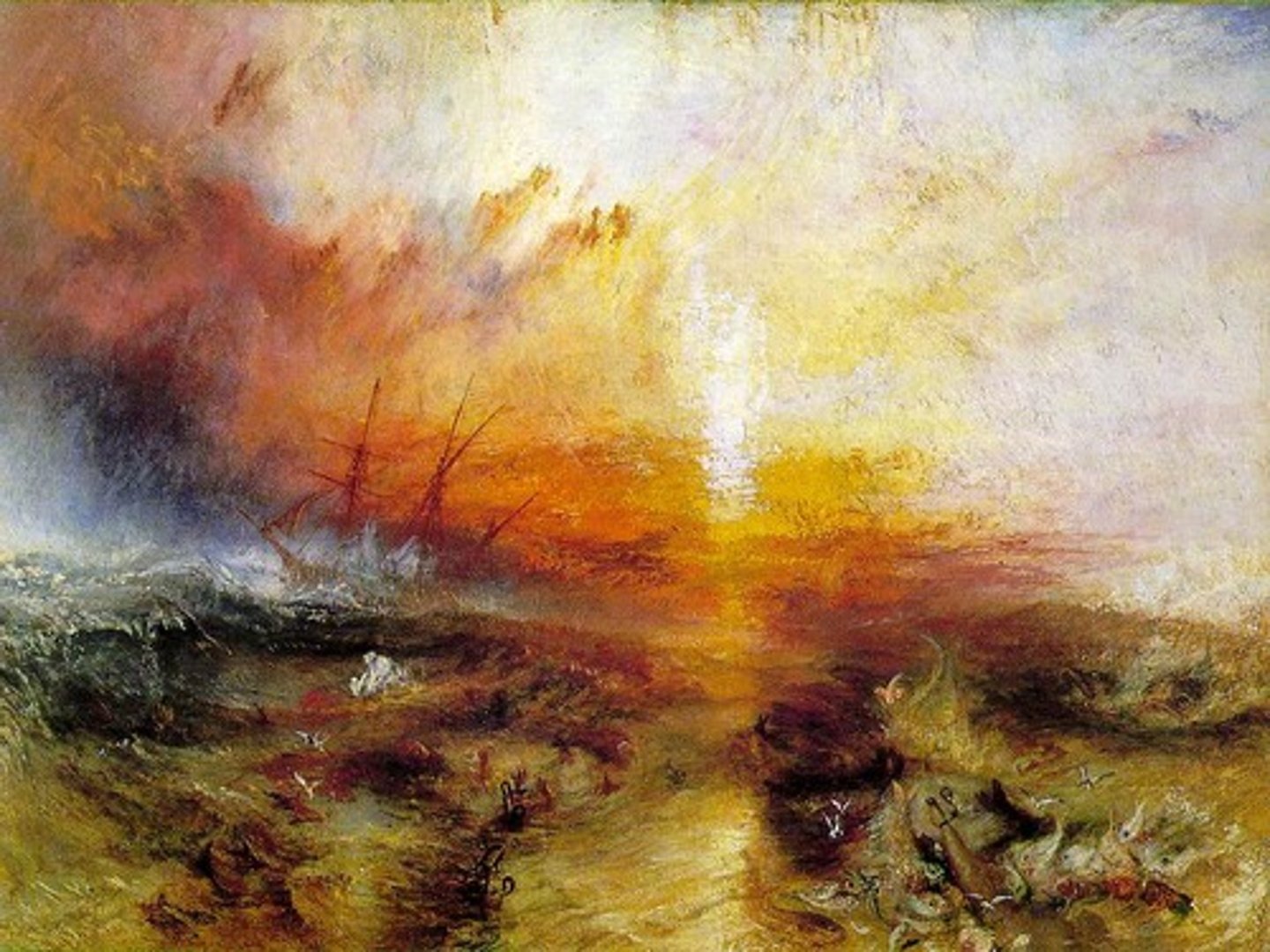
Chinese Immigrants
Many Chinese came to America with the 1849 California Gold Rush; many helped build railroads; many then returned to China.
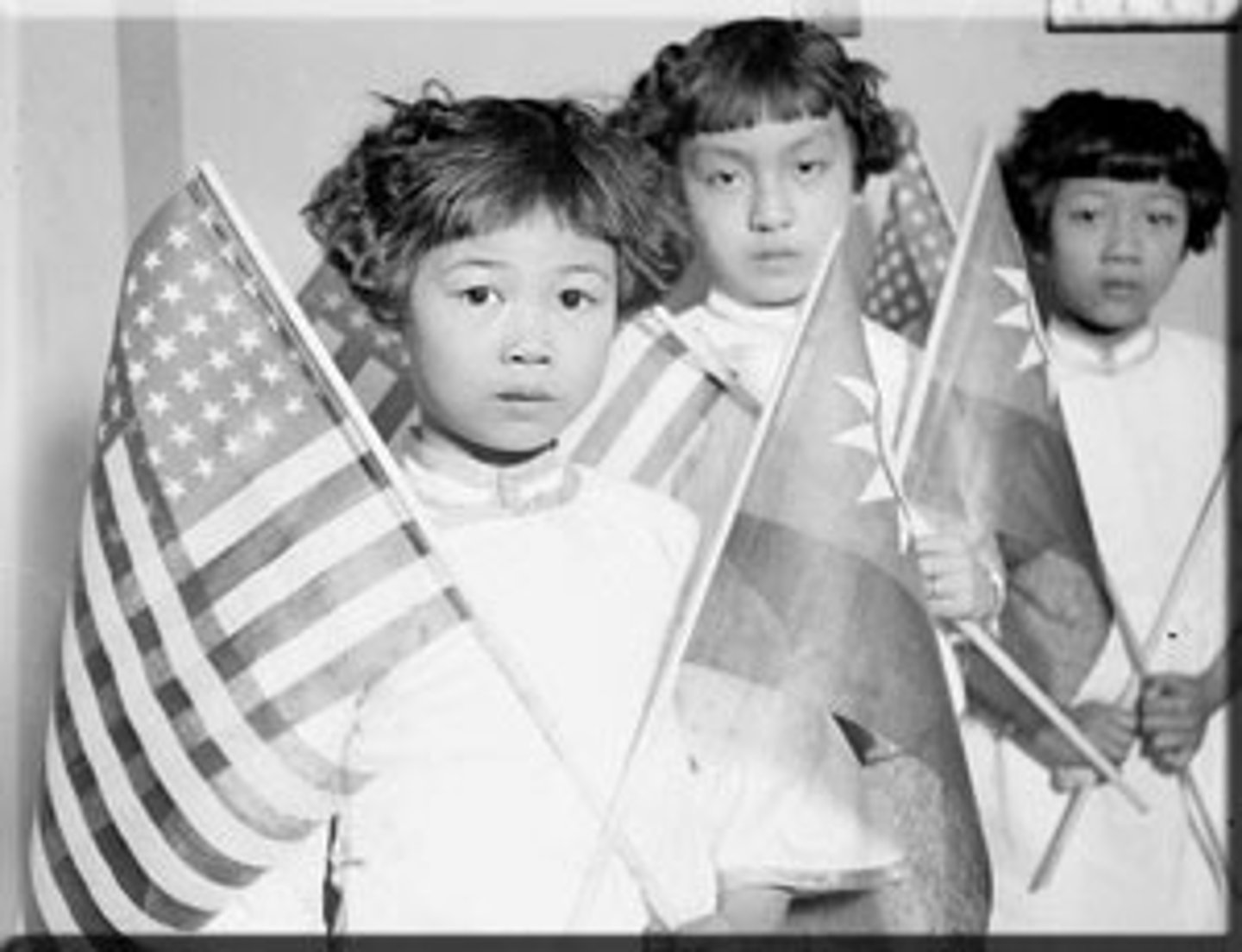
Frederick Douglass
Escaped slave and great black abolitionist who fought to end slavery through political action, wrote North Star
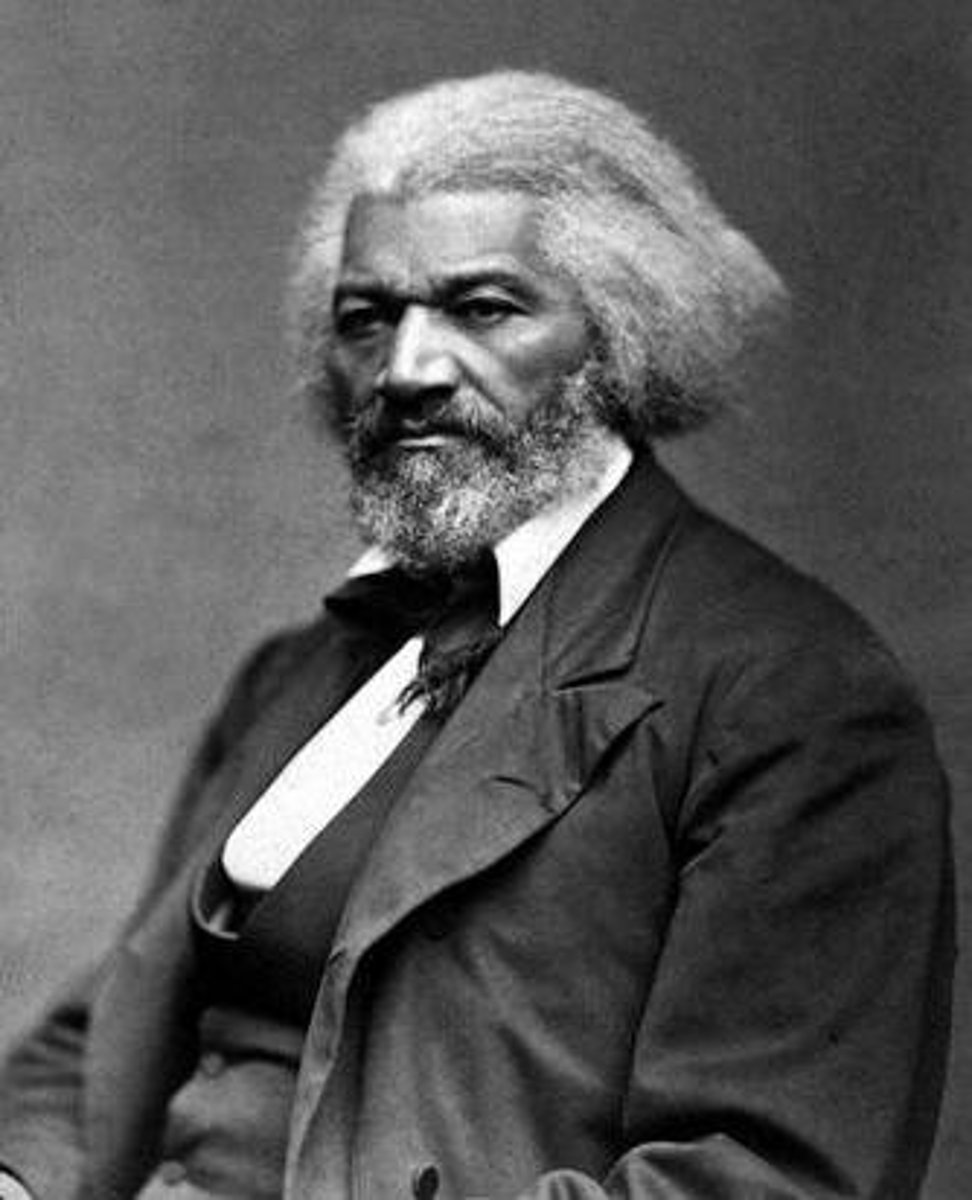
Baptists
Dissenters of the Church of England; focused on the power of local churches; stresses following in example; each person interprets the Bible the way the Holy Spirit tells them how; emphasis on New Testament; no Church creeds. It was very simple and appealed to rural people
